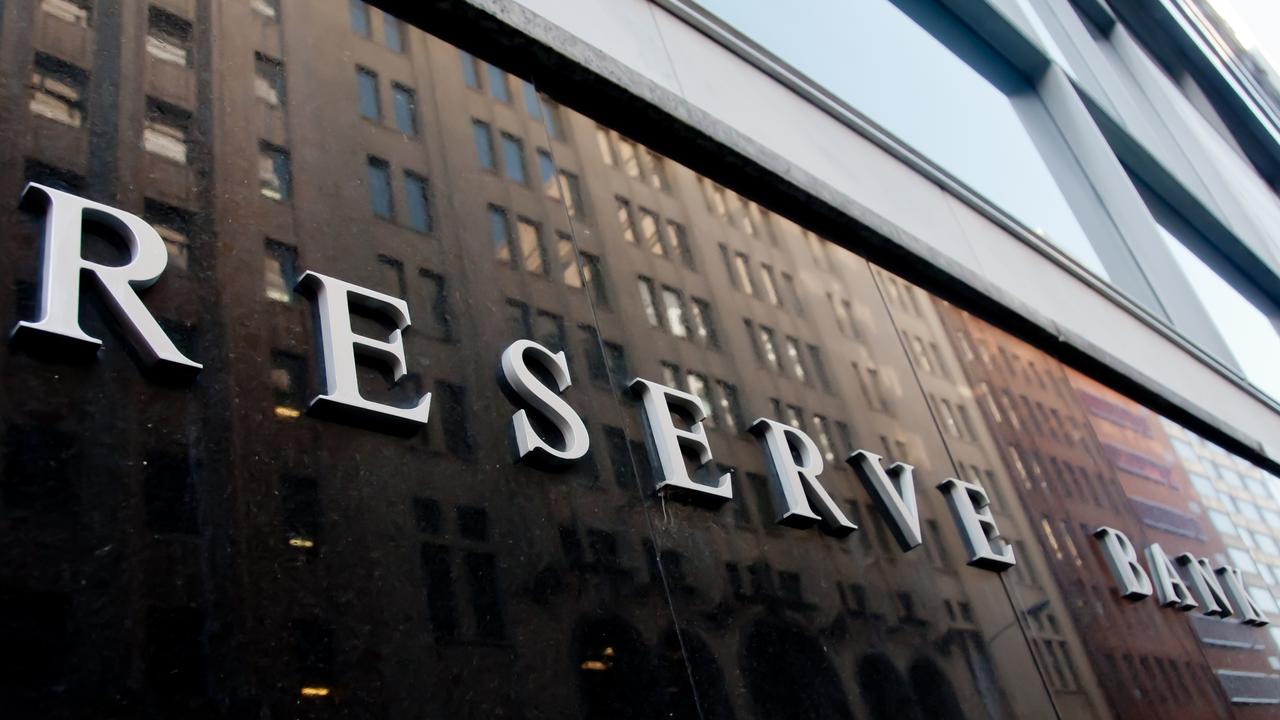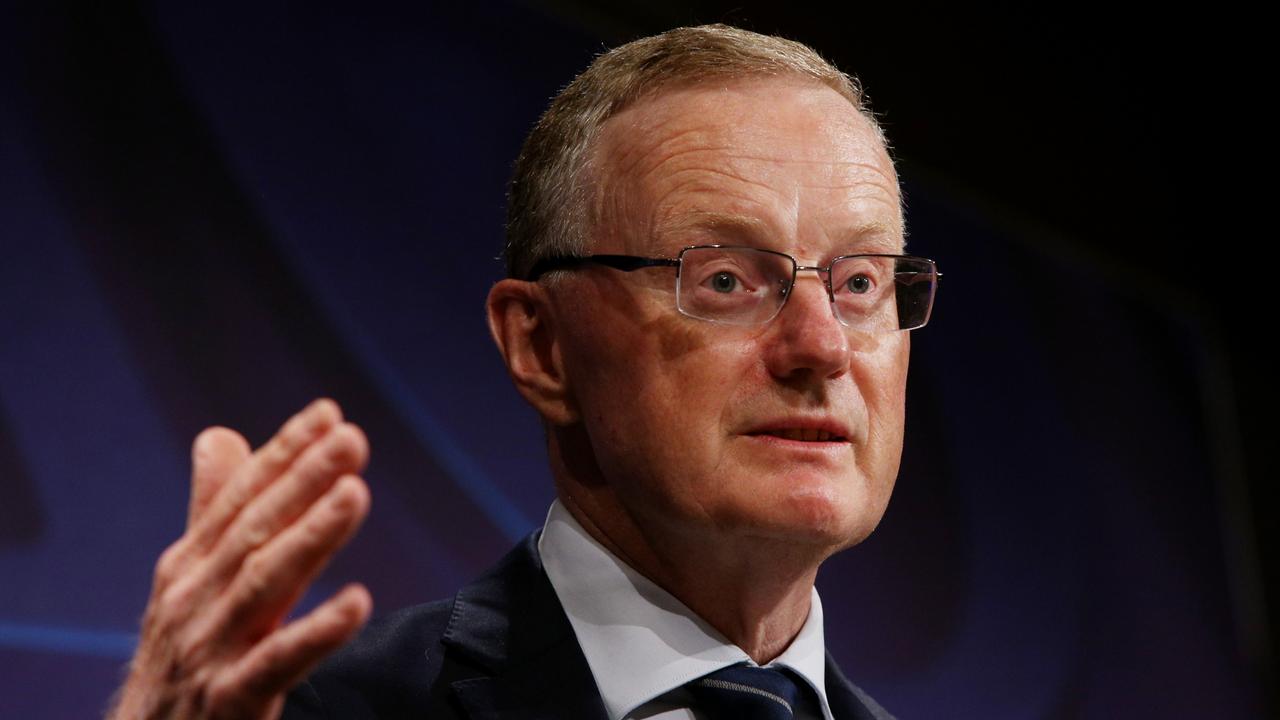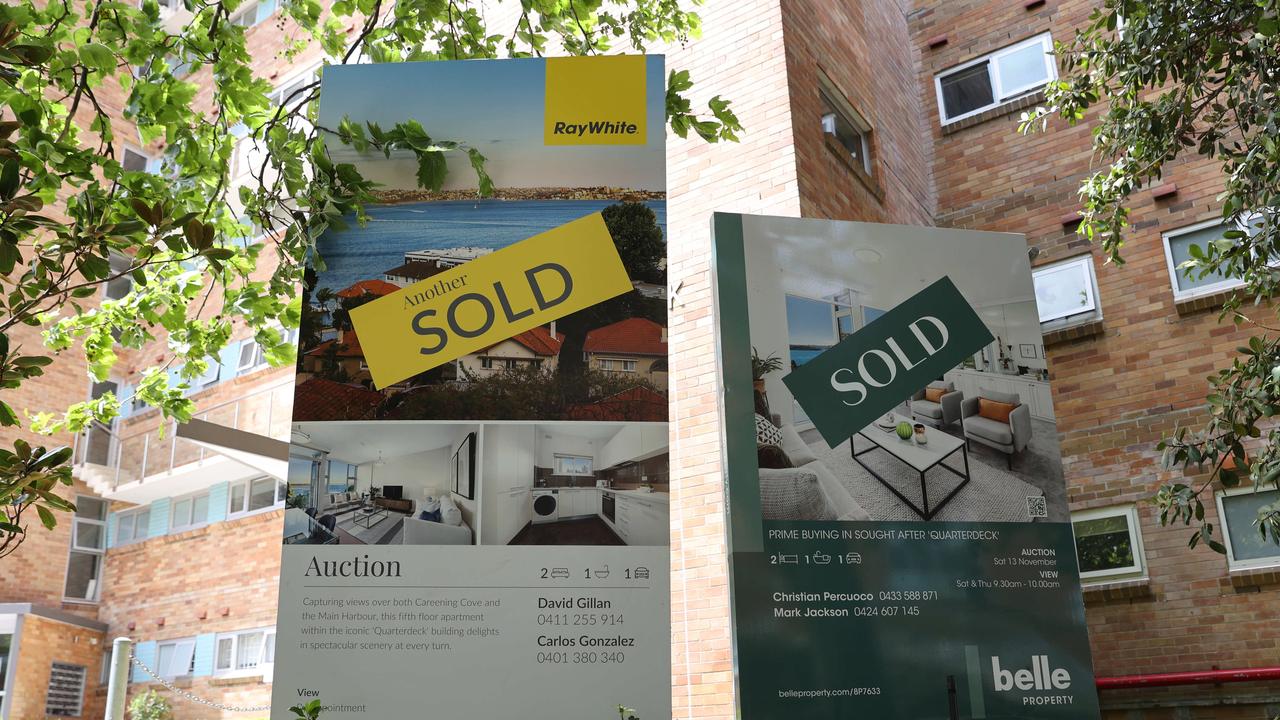Reserve Bank governor Philip Lowe again concedes 2022 rate hike is ‘plausible’
The head of Australia’s Reserve Bank has again conceded a rate hike this year is possible and will come as a shock to those without a ‘buffer’.
The Reserve Bank of Australia boss has again conceded interest rates could rise this year, saying it would be a “shock” to some homebuyers but others had got ahead on their mortgages.
RBA governor Philip Lowe was questioned by a parliamentary committee examining the central bank’s annual report on Friday and unsurprisingly would not be drawn on which month its first rate hike since 2010 might come.
The median Aussie household had doubled their mortgage “buffer” from the usual one year to two years, Dr Lowe said.
“That means that when interest rates go up, there will be a large number of households that don’t have to adjust their mortgage repayments for a modest increase in interest rates,” he said.
“There are a large number of households that don’t have the buffer and they will have to increase their mortgage payments. We look at these buffers a lot because it will influence how households react.

“Many people are focused on, and I think rightly, the level of household debt relative to income is at a record high, so the stock that higher interest rates will apply to has increased.
“I imagine when the time comes, that will be a shock to people who had only got used to interest rates falling.”
Dr Lowe reiterated the economic conditions needed for a rate rise could come in 2022 — which he only first conceded last week.
He previously forecast 2023, but more likely 2024, because the economy had roared back to life faster than expected and inflation had climbed higher than forecast.
“We’re looking at the evidence and the data, and it’s plausible that rates could go up some time this year,” he said.
“The higher interest rates will be occurring in an environment where people have got stronger wages growth and jobs, so we have to put all that together.
“We’ll learn as we go along this journey.

“The economy does have quite a lot of underlying growth momentum and resilience, so we’ll lift interest rates in an environment where the economy is doing well.”
On inflation, he said supply chain problems would be resolved, while the pace of wage growth was uncertain.
At a current unemployment rate in NSW and Victoria of about four per cent, wages hadn’t budged, and at rate of about 3.5 per cent in Western Australia, salaries were moving up “but not that much”.
“I think these uncertainties are not going to be resolved quickly,” Dr Lowe said.
“The stronger the economy and the more upward pressure on prices and wages, the stronger will be the case for an increase in interest rates.”
He also said he recognised there was a risk to waiting to lift rates, but there was also a risk to moving too early.
“Over the period ahead, we have the opportunity to secure a lower rate of unemployment than was thought possible just a short while ago,” Dr Lowe said.
“Moving too early could put this at risk.”

CommSec senior economist Craig James noted Dr Lowe had highlighted the differences between Australia and the US, where inflation data released overnight showed a 7.5 per cent jump in the year to January – a fresh 40-year high.
That compares to headline inflation of only 3.5 per cent in Australia.
“US inflation rates are being driven by a raft of factors such as rents, utilities and cars whereas the same price pressures don’t exist to anywhere near the same extent in Australia,” Mr James said.
“The other key difference is the much higher wage growth in the US compared with Australia.”
The market has been moving in anticipation of a rise to the official RBA cash rate, with Westpac on Thursday increasing fixed rates for the second time this year following hot on the heels of ANZ earlier this week.
“In spite of the significant increases to fixed rate loans over the past nine months, borrowers are going to have to understand that on the current trajectory, they are now as low as they will be for many years,” Canstar finance expert Steve Mickenbecker said.
“The best strategy for borrowers is to get into one of the low-rate loans still on offer. Canstar still lists 75 rates below 2 per cent, and these loans give borrowers the opportunity to build a buffer before, inevitably, they too become history.”
Read related topics:Reserve Bank




